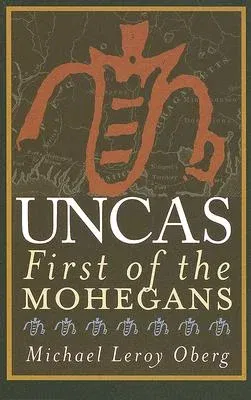Many know the name Uncas only from James Fenimore Cooper's The Last of
the Mohicans, but the historical Uncas flourished as an important leader
of the Mohegan people in seventeenth-century Connecticut. In Uncas:
First of the Mohegans, Michael Leroy Oberg integrates the life story of
an important Native American sachem into the broader story of European
settlement in America. The arrival of the English in Connecticut in the
1630s upset the established balance among the region's native groups and
brought rapid economic and social change. Oberg argues that Uncas's
methodical and sustained strategies for adapting to these changes made
him the most influential Native American leader in colonial New
England.Emerging from the damage wrought by epidemic disease and English
violence, Uncas transformed the Mohegans from a small community along
the banks of the Thames River in Connecticut into a regional power in
southern New England. Uncas learned quickly how to negotiate between
cultures in the conflicts that developed as natives and newcomers,
Indians and English, maneuvered for access to and control of frontier
resources. With English assistance, Uncas survived numerous assaults and
plots hatched by his native rivals.Unique among Indian leaders in early
America, Uncas maintained his power over large numbers of tributary and
other native communities in the region, lived a long life, and died a
peaceful death (without converting to Christianity) in his people's
traditional homeland. Oberg finds that although the colonists considered
Uncas "a friend to the English," he was first and foremost an assertive
guardian of Mohegan interests.

